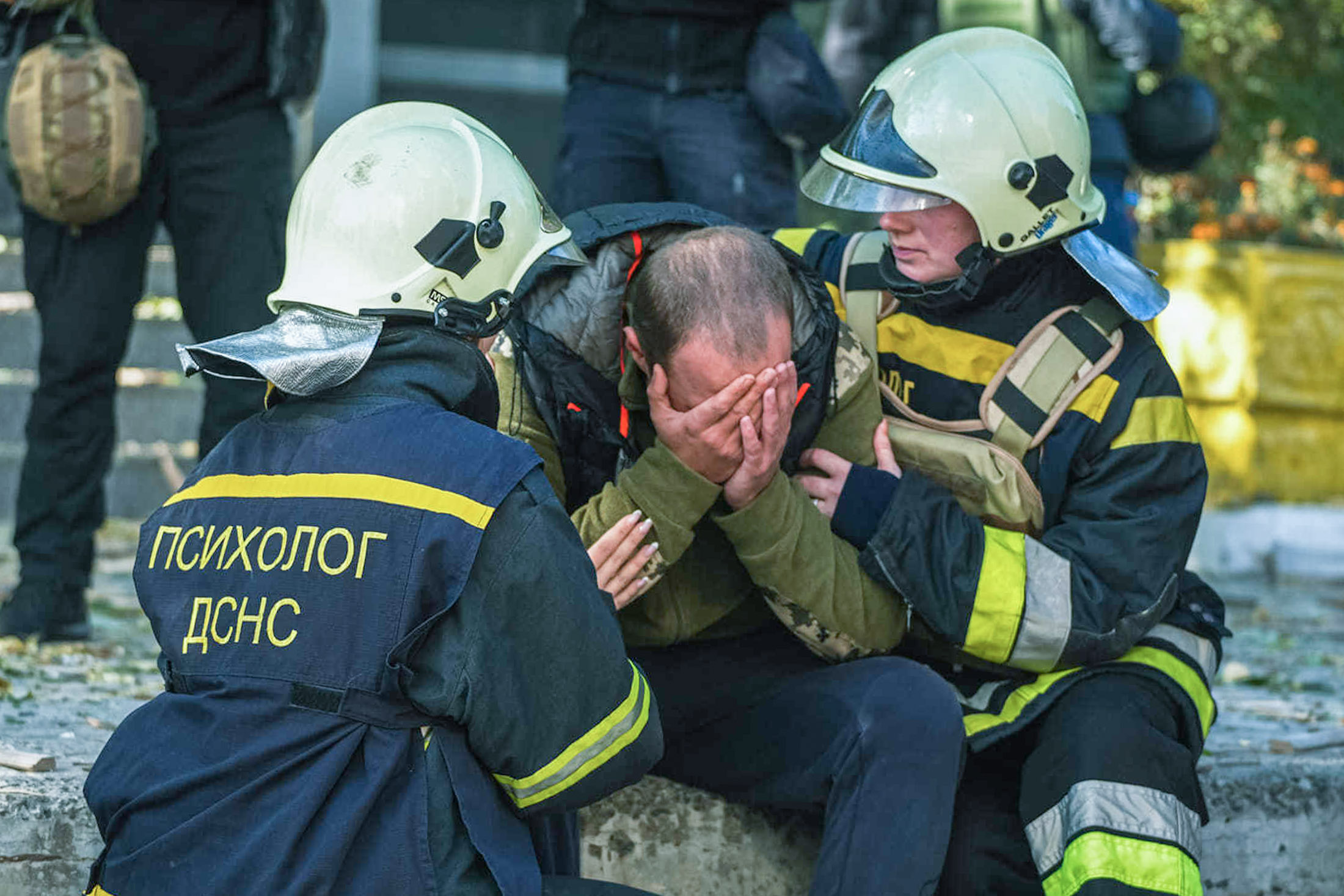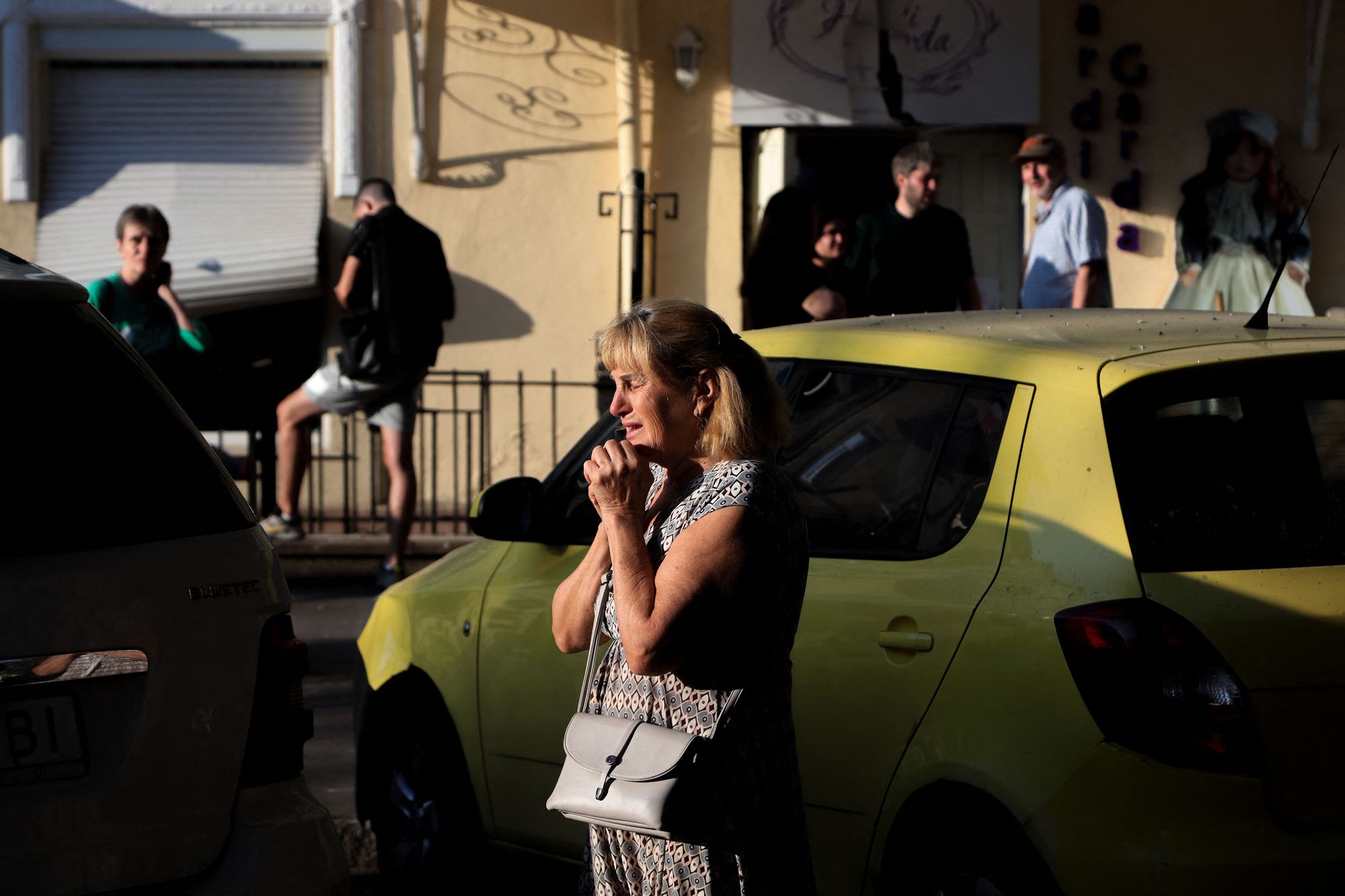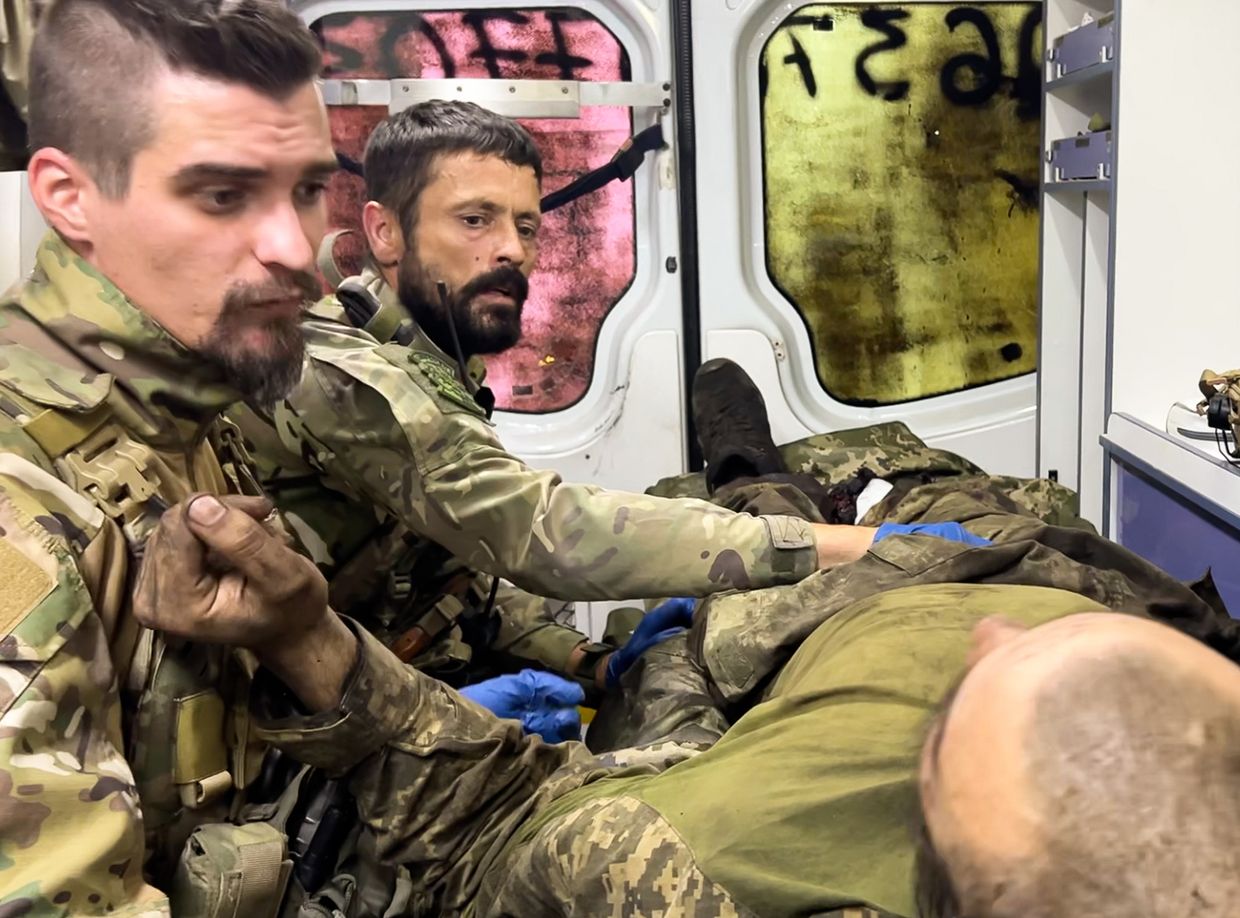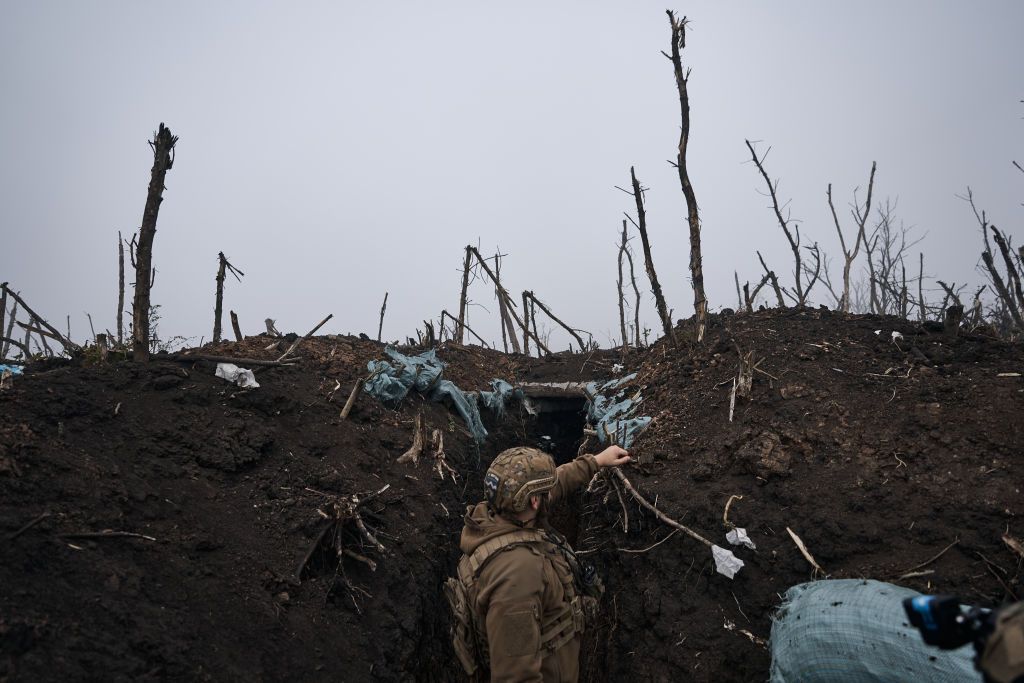Efforts to legalize cannabis to help Ukrainian veterans cope with trauma stymied by opposition in parliament

Many Ukrainian soldiers smoke weed to treat their pain, even though few will admit it in public.
“I know a lot of guys who lost their legs or arms and turned to cannabis,” a French soldier fighting for Ukraine told the Kyiv Independent, speaking anonymously to avoid backlash.
Wounded soldiers tend to have difficulty dealing with the pain of amputated limbs, a phenomenon known as “phantom pain.”
“The drugs prescribed in hospitals are not enough for their phantom pain,” the soldier said.
Ukraine could have as many as four million veterans when the war is over. A group of lawmakers, backed by President Volodymyr Zelensky, are pushing to legalize medical marijuana as a way to treat the growing number of soldiers with post-traumatic stress disorder (PTSD).
The lawmakers introduced a draft law that would create a licensing process to legally grow cannabis and eventually pave the way for healthcare facilities and businesses to be able to buy and distribute cannabis derivatives under strict regulation.
It was originally scheduled for a second reading in November, but lawmakers who oppose the law have introduced amendments, holding up the vote. Proponents worry that with the amendments, the current version of the law won't change much as it will effectively keep marijuana illegal.
In Ukraine, drugs are classified into two categories: the first includes illegal hard substances, while the second category includes their derivatives authorized for medical purposes.
The draft law, as it is currently written, would allow the use of medication made from cannabis, but wouldn’t legalize cannabis and its active substance, tetrahydrocannabinol (THC).
This means that in order to introduce a new cannabis-derived product onto the market, new amendments would have to be voted on each time, Taras Ratushnyi, pro-legalization activist and the co-founder of the legalization advocacy group Freedom March, told the Kyiv Independent.
Even if farmers can grow cannabis under the draft law, they won’t be able to sell it in Ukraine because the substance would still be classified as a “hard drug.” This would also make it impossible to do research on cannabis or manufacture drugs from THC.
Meanwhile, the scientific community is also divided on how effective cannabis is for treating PTSD.
Daniel Rebar, an American combat medic serving in Ukraine, told the Kyiv Independent he believed in a “common sense approach” and that medical marijuana should be legalized specifically to treat PTSD under strict medical control.
“We trust doctors with much more potent and serious medication than marijuana, I don’t know why we wouldn’t allow them to prescribe marijuana as well,” Rebar said.

Treating veterans
Between wounded veterans and people with cancer, about six million people might need cannabis treatments, Olha Stefanishyna, an MP from the Holos party, who advocates for legalization, told the Kyiv Independent.
More than 90% of the population has reported at least one symptom of post-traumatic stress disorder since the war started, the Ukrainian healthcare ministry reported in September 2022.
The report also said that 57% of Ukrainians are at risk of developing PTSD.
Zelensky backed the move toward legalization in a speech to the parliament in June, calling for “the best practices” to be applied in Ukraine.
“In particular, we must finally fairly legalize cannabis-based medicines for all those who need them, with appropriate scientific research and controlled Ukrainian production," Zelensky said.
The draft bill also aims to tackle the black market by legalizing medical marijuana for millions of veterans who are already self-medicating, Stefanishyna said.
Without a transparent and regulated market, many patients buy expensive cannabis from drug dealers without knowing what they’re buying.
“They take a risk because they want to live a normal life,” she said. “Thanks to the law, the black market will become transparent and allow for more control.”
Patients will need a doctor’s prescription to buy cannabis-based drugs in pharmacies or licensed stores if the draft law passes.
Stefanishyna said that those who oppose using cannabis to treat soldiers are clinging to Soviet-era fears surrounding drug use.
Former Prime Minister Yulia Tymoshenko, who leads the Batkivshchyna party, is among the law’s opponents. Tymoshenko believes the legalization of medical cannabis will lead to uncontrolled production and consumption.

Confusing law
Even legalization supporters are against the draft law as it’s currently written. Under the language of the draft law, cannabis would remain in the hard substance category and remain illegal, which has caused widespread confusion.
“If the law is passed as it is, they will make it sound like a victory, but it’s far from the truth,” Ratushnyi said.
They said that under the guise of a liberal move, the draft’s lack of clarity would hamper research, domestic production, and sales.
As written, the draft bill would require endless exceptions to make each derivative legal to sell, Ratushnyi said.
The draft law says it’s possible to import some products made out of cannabis, yet the range of derivative drugs will be very limited, which will hamper medical research.
It also doesn’t detail the process for researchers to procure medical cannabis, a template that could take years to refine.
“Everyone sees you could manufacture it and have a license, but how do you produce medicine from it?” Ratushnyi said. “This law doesn’t give you this opportunity.”
Stefanishyna defended the draft law as a framework that needs more fine-tuning. Precise regulations still need to be discussed at the level of the Cabinet of Ministers, she said.
“A lot can be changed,” she said.
Yet, Ratushnyi thinks the draft law should be rewritten clearly to change the status of cannabis in the first draft and avoid endless discussions at a governmental level.
“They will find new bureaucratic problems, and we’ll just postpone the decision indefinitely, like they did for the last ten years,” he said.
Conflicting studies
“Marijuana can be effective, and its side effects are very low,” Rebar said, especially compared to opioids’ drawbacks.
American studies on medical marijuana to treat veterans’ PTSD and anxiety have presented conflicting results over the past years.
A study review published by Forbes in 2020 gathered research showing cannabis reduced anxiety among patients who had PTSD, while a recent Wall Street Journal article quoted two studies concluding it could increase anxiety.
The U.S. Department of Veterans Affairs, summing up various research, wrote that the belief that cannabis can be used to treat PTSD is based on “anecdotal evidence” from veterans reporting a short-term reduction of anxiety symptoms.
Veterans with PTSD are also more prone to addiction, according to other studies gathered by the department.
Legalizing medical cannabis to help millions of soldiers is a no-brainer, Viktor Dosenko, the head of a pathophysiology department in Kyiv, told the Kyiv Independent.
He admitted the possibility of research was limited by restrictions on the illegal substance, and the draft law may not change it.
“Research is not feasible under this framework, in my opinion,” Dosenko said.














